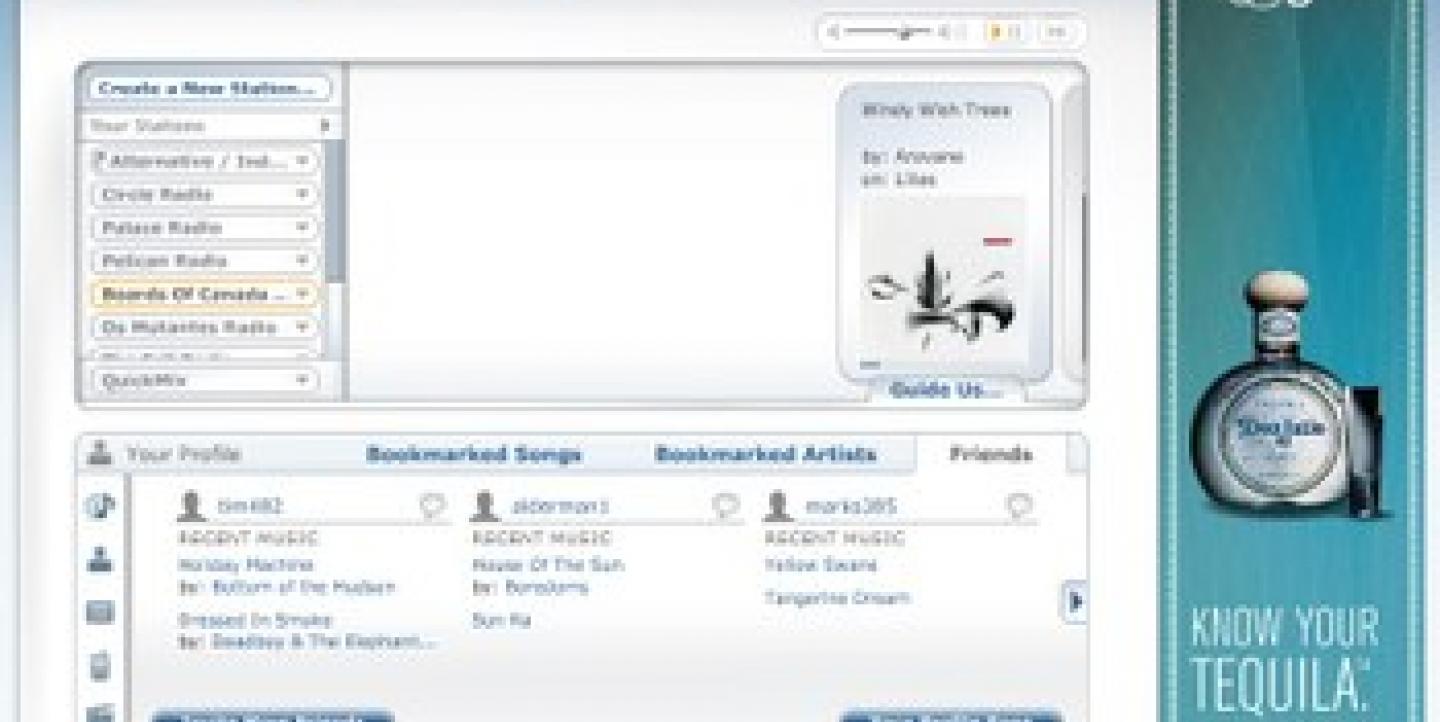The big news in multimedia these days is Pandora. You may not have seen the service, because it's not yet legal outside of the United States. But those who follow digital trends definitely will have heard of the Internet radio station that learns your music preferences and streams music that you'll like.
Just after the 3G iPhone launched on July 11, Pandora was called the next killer mobile application. And a few days after that, changes to the rates that Webcasters must pay to broadcast music went into full effect, threatening Pandora's immediate survival.
Before announcing last week that without a change in the new structure, Pandora would be out of business by the end of the year, I'd already planned to speak with CEO Tim Westergren for this column. I wanted to talk to him about the incredible technology that powers Pandora and the many ways his team has innovated online content. And I wanted to share with you some of his insight as it might apply to journalism.
Below is our conversation. Tim wasn't willing to discuss the details of how the new rates would affect Pandora or even Pandora's near future. (I did ask.) But from my point of view, what Tim has to say about aggregators and newspapers, personalizing content, and human involvement in search is more important to than his current thoughts on the U.S. Copyright Office and its attempt to shut down the broadcast of music online.
Full disclosure: I've been using Pandora since it first launched, and I know some of the folks at the company. I'll say up front that I'm a very big fan of Pandora and admire all of the work Tim has done to enhance database-driven multimedia work online. I firmly believe that his approach to personalization is one that we might consider for delivering the news online.
Amy Webb: Because this column is read by journalists from outside of the U.S., can you explain a bit more about Pandora and how it's powered?
Tim Westergren: The foundation for Pandora is what's called the "music genome project," and it's an enormous hand-built database of a half-million songs. There is a team of musicians, about 50 of them, who have analyzed each one, close to 400 attributes per song. We ask musicians to sit in our office with headphones on and listen to the songs and score them along all these attributes, kind of like musical DNA. That is plugged into an algorithm that computes musical proximity. So when you type a song into Pandora, it looks at that song's musicological content and looks for its neighbors.
Amy Webb: So it's a mix of machines and manpower? What other elements go in to the database?
TW: There's no machine listening. We can now incorporate some of the wisdom of the audience, and that plays a role. If you play a song on a Bon Jovi station and it's consistently thumbs down, we'll play that song less even if the algorithm says that we should play it more.
AW: It seems strange that during a time when we're trying to automate everything possible, you're using actual people to help code, sort and categorize digital information.
TW: We've gone in the opposite direction of most technology, which is really about scalability and automation. We've gone in a much more Luddite approach. What's fundamentally different about Pandora is that we've taken the time to understand the intrinsic qualities of music. It's a product that we understand.
AW: A lot of news organizations worry about RSS. If I subscribe to an RSS feed, and if the feed publishes the full article, then I never really need to go the Website. That means that news organizations aren't getting clicks, which translates to fewer ad dollars. I've long thought that smart news organizations should own and deploy the aggregator technology. That they should create a personalized version of their own news site.
TW: There's a trend towards news feeds. You read the feed, you don't go to the Website or the paper. That's a challenge, to bring people to your news Website. There's so much content online, we need the algorithms to get things into some kind of order, but we almost need a person to shepherd us through. Over time, there's going to be a race towards personalization. That's what's going to distinguish one news service from another. The ability to deliver to you the stories you're interested in. You're going to see the Pandora approach used in many more places soon - it's already used in online dating.
AW: And your approach is platform agnostic, right? To be able to get Pandora anywhere, anytime?
TW: The future lies in diversification. On the phone, at work, wherever you are. And I think that with that reach, the future for us is hundreds of millions of listeners. Our ambition is to be the largest radio station in the world.
AW: So what would you tell news organizations? How can they learn from the Pandora model?
TW: I have an underlying belief that what gets rewarded in the end is a combination of creating a quality product - really good writing - and putting that quality writing in front of someone for whom its relevant. Those are the really two critical pieces of the value chain. If I was a newspaper I would try to figure out how to get good at delivering content in a way that the consumer wants it.
Amy Webb is a digital media consultant and head of Webbmedia Group, LLC. Find more multimedia tips and ideas at her blog, http://www.mydigimedia.com. Webbmedia Group is a vendor-neutral company. Any opinions expressed about products or services are formed after testing, research and interviews. Neither Amy Webb nor Webbmedia Group or its employees receives any financial or other benefits from vendors.

